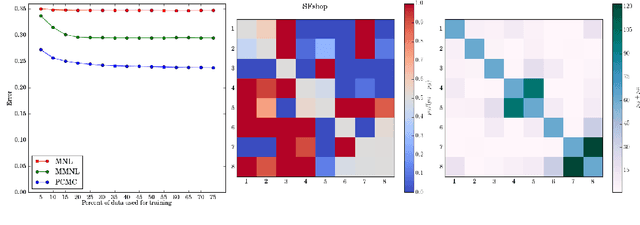Pairwise Choice Markov Chains
Paper and Code
Sep 19, 2017



As datasets capturing human choices grow in richness and scale---particularly in online domains---there is an increasing need for choice models that escape traditional choice-theoretic axioms such as regularity, stochastic transitivity, and Luce's choice axiom. In this work we introduce the Pairwise Choice Markov Chain (PCMC) model of discrete choice, an inferentially tractable model that does not assume any of the above axioms while still satisfying the foundational axiom of uniform expansion, a considerably weaker assumption than Luce's choice axiom. We show that the PCMC model significantly outperforms the Multinomial Logit (MNL) model in prediction tasks on both synthetic and empirical datasets known to exhibit violations of Luce's axiom. Our analysis also synthesizes several recent observations connecting the Multinomial Logit model and Markov chains; the PCMC model retains the Multinomial Logit model as a special case.
 Add to Chrome
Add to Chrome Add to Firefox
Add to Firefox Add to Edge
Add to Edge